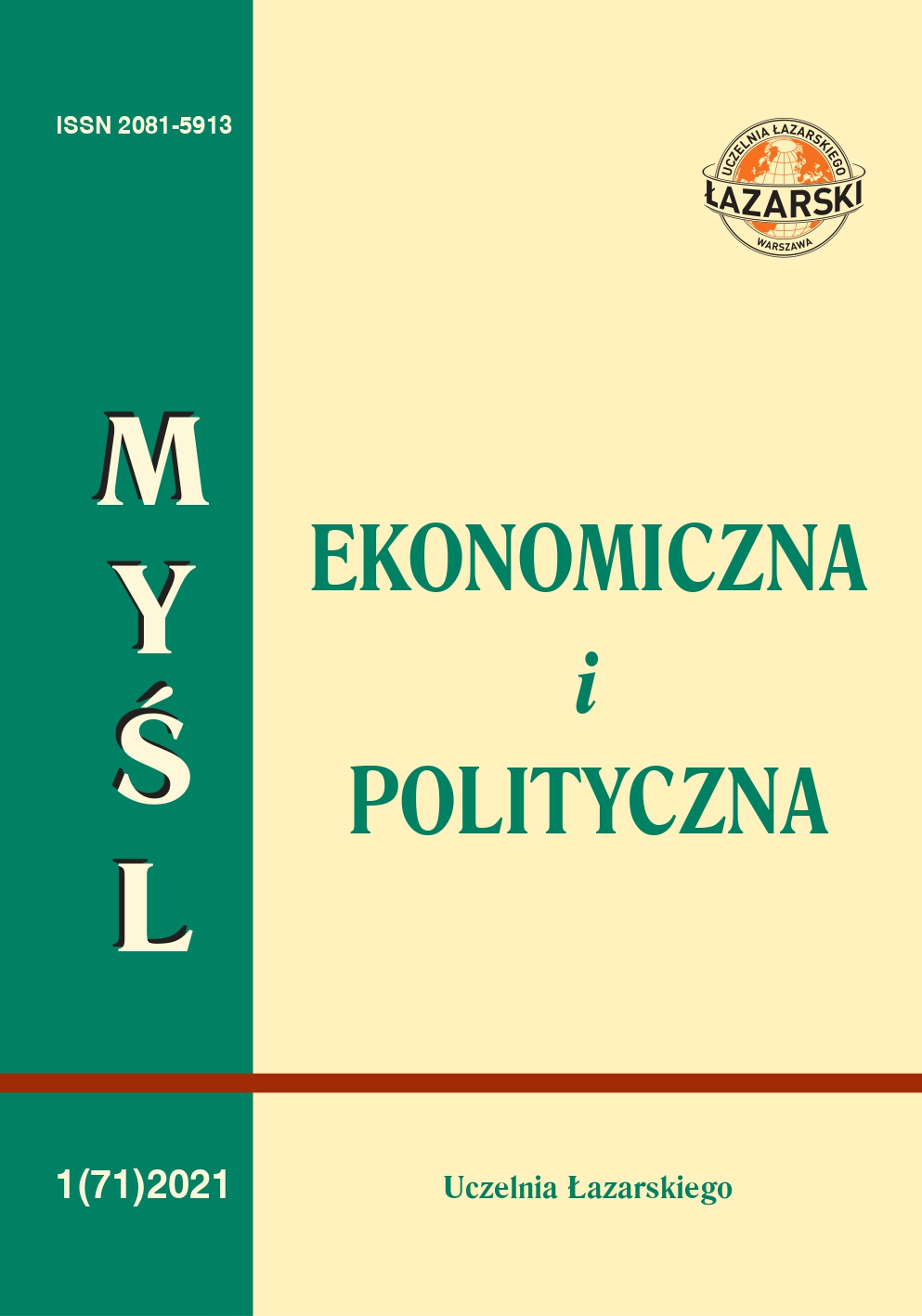Abstract
This article has three objectives. The first one is to compare and interpret the economic growth that was seen over the period of 2000–2018 (partly in reaction to the world financial crisis of 2008–2009) by two exceptional EU Member States: Greece, which saw the greatest decline in GDP, and Poland, which suffered the smallest costs of the crisis. The second objective is to analyse the risks to the pace and stability of Poland’s economic growth and the state of public finances following 2018. It is argued that Poland, despite these risks, is not likely to become a second Greece. The third objective is to note that the presence of strong persistent factors, such as globalisation and climate changes, tends to foster longer-term rationality in economic policies of the EU institutions, and that this may have an important positive impact on national policies and economic performance of the member countries of the EU, including Poland.

This work is licensed under a Creative Commons Attribution-NonCommercial-ShareAlike 4.0 International License.
